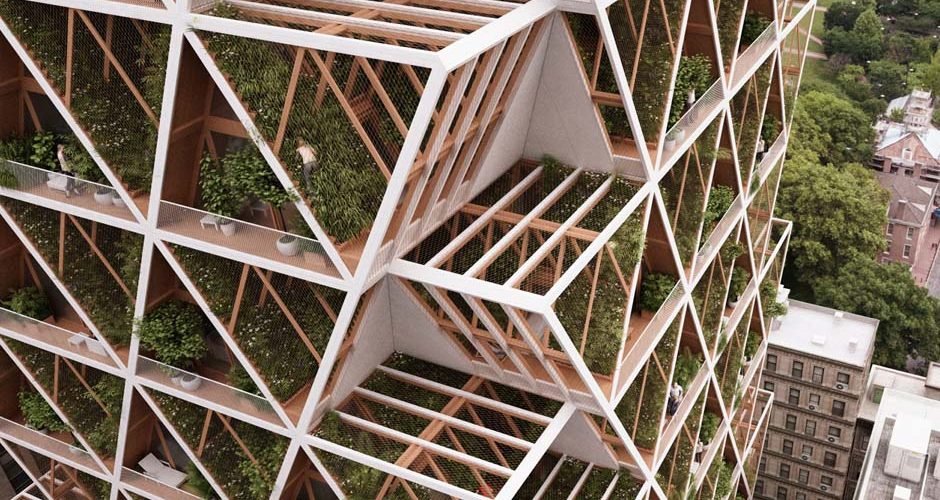In an era where sustainable agriculture is becoming increasingly crucial, vertical farming has emerged as a pioneering solution to address the challenges of food production in urban environments. By leveraging innovative technologies and design concepts, vertical farming ventures are scaling new heights, and offer a sustainable and efficient option for urban food production
Using Unusable Areas
As vast expanses of land shrink, moving toward compact, vertically stacked growing systems can add new options. According to the U.S Department of Agriculture, Dr. James Altland states, “Vertical farming crops can often be grown without pesticides and are much less likely to be contaminated by pathogens harmful to humans such as E. coli.” This revolutionary approach maximizes space utilization, which makes it particularly suitable for densely populated urban areas where land availability is limited. By utilizing unused urban spaces such as warehouses, skyscrapers, and shipping containers, vertical farms can bring food production closer to consumers, which reduces transportation costs and carbon emissions associated with long-distance food supply chains.
One of the key innovations driving the success of vertical farming is the integration of advanced technologies such as hydroponics, aeroponics and aquaponics. These soilless cultivation techniques optimize resource use by delivering water, nutrients and light directly to plants, which minimizes wastage and maximizes yields. Additionally, precision control systems monitor environmental variables such as temperature, humidity and CO2 levels, which ensures optimal growing conditions and crop health. This high level of automation not only increases efficiency but also reduces the need for manual labor, which makes vertical farming economically viable.
Increased Sustainability
Vertical farms are also embracing sustainable practices by implementing renewable energy sources such as solar panels and LED lighting systems. By harnessing solar energy and employing energy-efficient lighting technologies, vertical farms can significantly reduce their carbon footprint and operating costs. Some innovative projects even incorporate rainwater harvesting and water recycling systems to minimize water usage.
Furthermore, advancements in genetic engineering and plant breeding are revolutionizing crop cultivation in vertical farming systems. Scientists are developing genetically modified crops that are tailored to thrive in indoor environments, with traits such as fast growth, high yield and resistance to pests and diseases. These genetically enhanced crops have the potential to significantly boost productivity and food security in urban areas, while also reducing the need for chemical inputs.
Increased Benefits
The versatility of vertical farming extends beyond traditional crops to include a wide range of specialty and exotic produce. From leafy greens and herbs to strawberries and microgreens, vertical farms can cultivate diverse varieties of fresh, nutritious foods year-round. Moreover, by shortening the supply chain and delivering produce directly to consumers, vertical farming promotes food sovereignty and strengthens local food systems.
In addition to its agricultural benefits, vertical farming also offers social and economic advantages for urban communities. By creating local employment opportunities and fostering community engagement through educational programs and urban farming initiatives, vertical farms contribute to the revitalization of urban neighborhoods and promote a deeper connection between consumers and their food sources.
In conclusion, vertical farming represents a transformative approach to urban food production, and leverages innovation to overcome the limitations of traditional agriculture. By harnessing advanced technologies, sustainable practices and genetic advancements, vertical farms are scaling new heights in efficiency, productivity and environmental stewardship. As we confront the challenges of feeding a growing global population while mitigating the impacts of climate change, vertical farming offers a sustainable path toward a more resilient and food-secure future.





